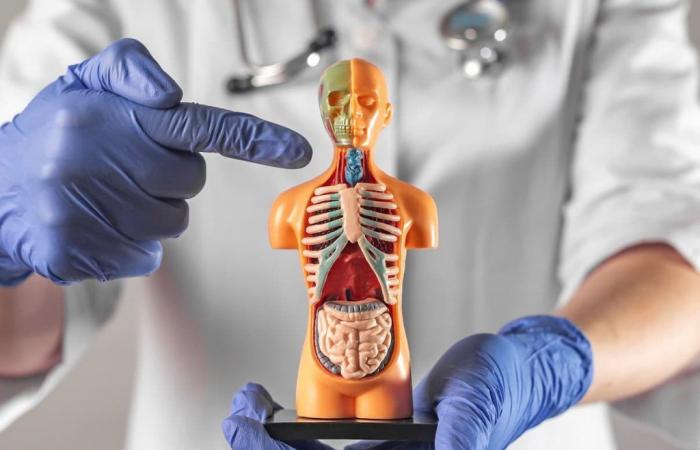Each organ in the human body has an important function for the functioning of the human body, right? It depends! There are some organs vital to our lives, such as the brain and the heart, where, without them, it would be completely impossible to live.
However, you may not know, but there are other organs from which you can have a normal life or almost, without part or removal of one of them. An example of this is the lungs, where it is possible to have a reasonably normal life without one of them.
We cannot deny how the human body is an incredible machine, just imagine, inside you there are more than 600 muscles, around 206 bones and thousands of tendons spread across a body with an average height of 1.70, something truly incredible.
Well, despite being so complex and where each of these parts is part of an even larger system, with specific purposes so that our body can perform the basic functions for life, the human body can still continue to live. without some of them.
In short, know that you do not need all the organs in your body to live, this is because, thanks to the evolution of human beings and consequently to advances in medicine, thousands of human beings live without several organs that were once considered vital, and it is precisely these bodies that we will talk about now.
Also read | 7 organs that we have in our body and no longer need
Organs we don’t need to live
The human body’s ability to adapt and continue to function even after the removal of certain organs is truly incredible. Next, let’s find out which organs in the human body you can have a practically normal life, even without them:
1. Appendix
The appendix is located at the junction of the large intestine and small intestine, and has been the subject of much scientific speculation. It is believed to have the function of storing good bacteria, helping to repopulate the intestine after disorders. However, when inflamed, it is necessary to remove the appendicitis. Interestingly, life after appendectomy continues without major changes, suggesting that the appendix has functions limited to the modern human body.
2. Spleen
The spleen is an essential organ for filtering blood and part of the immune system, the spleen also has a certain contribution to the fight against certain bacteria. Its absence makes people more susceptible to infections. However, other organs, especially the liver, take over many of its functions, allowing people even without a spleen to lead relatively normal lives.
3. Stomach
Stomach removal only happens in extremely serious cases, usually in response to cancer or other serious illnesses. However, when you lose your stomach, you end up going through significant changes in digestion and nutrient absorption. Post-surgical nutrition requires adaptations, such as smaller, more frequent meals and vitamin supplementation, but it is possible to maintain an adequate nutritional status and enjoy a good quality of life.
4. Reproductive organs
Hysterectomy (removal of the uterus) and orchiectomy (removal of one or both testicles) may have implications for fertility, but they do not stop people from living completely normal lives. Reproductive medicine offers several options for people who want to have children after these procedures. Furthermore, removing these organs can be very important for treating diseases such as cancer.
5. Kidneys
Living with a single kidney is more common than many realize. Whether due to kidney donation or removal due to illness, even without a kidney people usually lead normal lives, although regular medical monitoring is necessary to ensure kidney health.
6. Gallbladder
Cholecystectomy, or gallbladder removal, is a common procedure performed in response to gallstone formation. Bile, essential for the digestion of fats, is still produced by the liver, but its direct flow to the small intestine may require adjustments in the diet to minimize discomfort, such as intolerance to very fatty foods.
7. Colon (Large Intestine)
The colon plays a role in the last stage of digestion, where nutrients are absorbed and waste is prepared for elimination. However, in cases of colorectal cancer, it may be necessary to remove part or all of the colon. After this surgery, the body’s waste elimination process is modified. For example, an opening can be created in the abdomen so that feces can be collected in an external bag, a procedure known as a colostomy. Although this change requires significant adaptations in everyday life, many people are able to resume their regular activities.
8. Bladder
Bladder removal may be necessary in some cases of bladder cancer or conditions such as neurogenic bladder, where bladder control is compromised due to problems with the nervous system. In this situation, a segment of the intestine can be used to create a new passageway for urine, either by recreating a “neobladder”, which allows urine to be eliminated more naturally, or by redirecting urine to an external collection bag.
Although patients may need initial adjustments, such as using alarms to remind them to empty their bladder every few hours, many learn to identify the signs that it is time to empty their “neobladder”, adapting to this new reality with ease. success.






